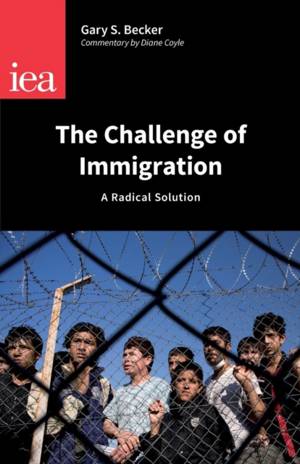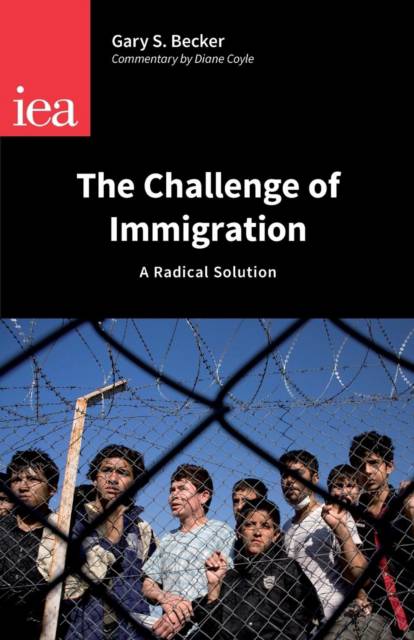
- Retrait gratuit dans votre magasin Club
- 7.000.000 titres dans notre catalogue
- Payer en toute sécurité
- Toujours un magasin près de chez vous
- Retrait gratuit dans votre magasin Club
- 7.000.0000 titres dans notre catalogue
- Payer en toute sécurité
- Toujours un magasin près de chez vous
Description
How can market-based solutions help solve the challenges of immigration? Nobel Prize winner Prof. Gary Becker, in this IEA Occasional Paper, proposes a radical policy which, if implemented by the coalition government, could raise over �600 million a year. Prof. Becker proposes that visas to work in the UK should be sold off. The coalition's immigration cap scheme could be amended using this proposal to ensure that the most suitable immigrants are allowed in. The people willing to pay the most to live in the UK are likely to be the same people who would contribute most to our economy. Executive Summary: - Despite substantial economic growth in underdeveloped countries, there are still huge differences in wage levels between poorer and richer countries. - Low fertility, especially in Europe, is also likely to lead to pressures that will encourage migration in future decades. - Net migration has grown dramatically in recent years. In 1980, net migration to the UK was approximately zero and by 2005 the figure was 190,000 per annum. In the same periodnet migration to the USA more or less doubled to 1.1 million per annum. - There were very substantial migration flows in the late nineteenth century but the USA imposed restrictions from the 1920s onwards. Those restrictions are onerous and involve bureaucratic controls. - Given the extent of welfare states in countries with higher incomes, it would be difficult to go back to a policy of free migration. - There would be many advantages to a policy of charging immigrants a fee. If a fee of (say) $50,000 were charged, it would ensure that economically active migrants who had a real commitment to the country were most attracted. This fee could be used to lower other taxes. - Charging a fee would be a much more efficient way of controlling economic migration than the use of quotas and other bureaucratic systems of control. - Even a fee of $50,000 would allow people on relatively low earnings to enter the USA if there were skill shortages. Given the level of wage differentials, such a fee could be paid back in a few years or in a decade or so. - Certain categories of migrant might be allowed to benefit from a loans system to enable them to pay the fee over a period of years. This could operate rather like a student loans system in higher education. - One advantage of using a fee rather than administrative controls would be that illegal immigrants would have a strong incentive to regularise their status - and would be allowed to do so legally. Such people would have to pay the required fee but would then be free to choose much more remunerative occupations. As such, the use of the price mechanism in migration policy could alleviate the scourge of illegal immigration.
Spécifications
Parties prenantes
- Auteur(s) :
- Editeur:
Contenu
- Nombre de pages :
- 69
- Langue:
- Anglais
- Collection :
- Tome:
- n° 145
Caractéristiques
- EAN:
- 9780255366137
- Date de parution :
- 14-04-11
- Format:
- Livre broché
- Format numérique:
- Trade paperback (VS)
- Dimensions :
- 127 mm x 196 mm
- Poids :
- 136 g

Les avis
Nous publions uniquement les avis qui respectent les conditions requises. Consultez nos conditions pour les avis.






